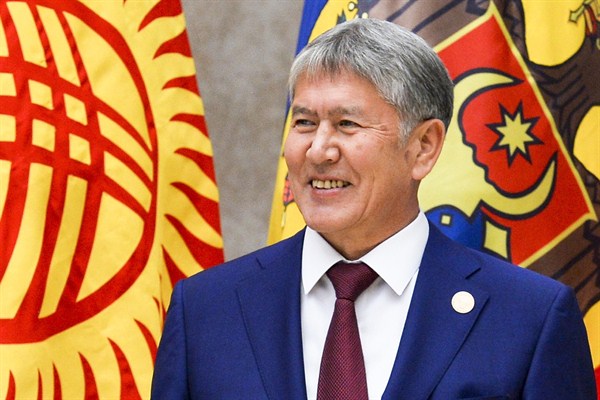Kyrgyzstan will hold a referendum on Dec. 11 on proposed reforms to its constitution that would give more power to the prime minister. Opponents of the reforms fear they are a way for President Almazbek Atambayev to maintain his grip on power and crack down on human rights. In an email interview, Medet Tiulegenov, an assistant professor at the American University of Central Asia, discusses Kyrgyzstan’s constitutional referendum.
WPR: What changes would the Dec. 11 referendum make to Kyrgyzstan’s constitution, and what are President Almazbek Atambayev’s political objectives in seeking them?
Medet Tiulegenov: The proposed changes largely concern issues of human rights and citizenship, the powers of the prime minister, and the judicial system. If these changes are adopted, the courts will not have to take into account decisions of international institutions, such as the United Nations, on human rights-related cases. Rights can be further limited based on reasons of “particularities of military and civil service.” This stipulation is vague and leaves room for interpretation, and it could be detrimental for human rights. The constitutional reforms would also allow the prime minister or his or her deputy to simultaneously serve as a member of parliament; and would give the prime minster the power to unilaterally dismiss Cabinet members as well as hire and fire heads of local state administrations without consultations with local councils. A new disciplinary committee would be created under the authority of the Judges’ Council, the body responsible for the selection of judges, which would be composed of council nominees, the president and the parliament. The Supreme Court’s guidelines would also become mandatory for judicial practice, which was not the case before. These proposed changes will likely lead to greater executive control over the judiciary.

